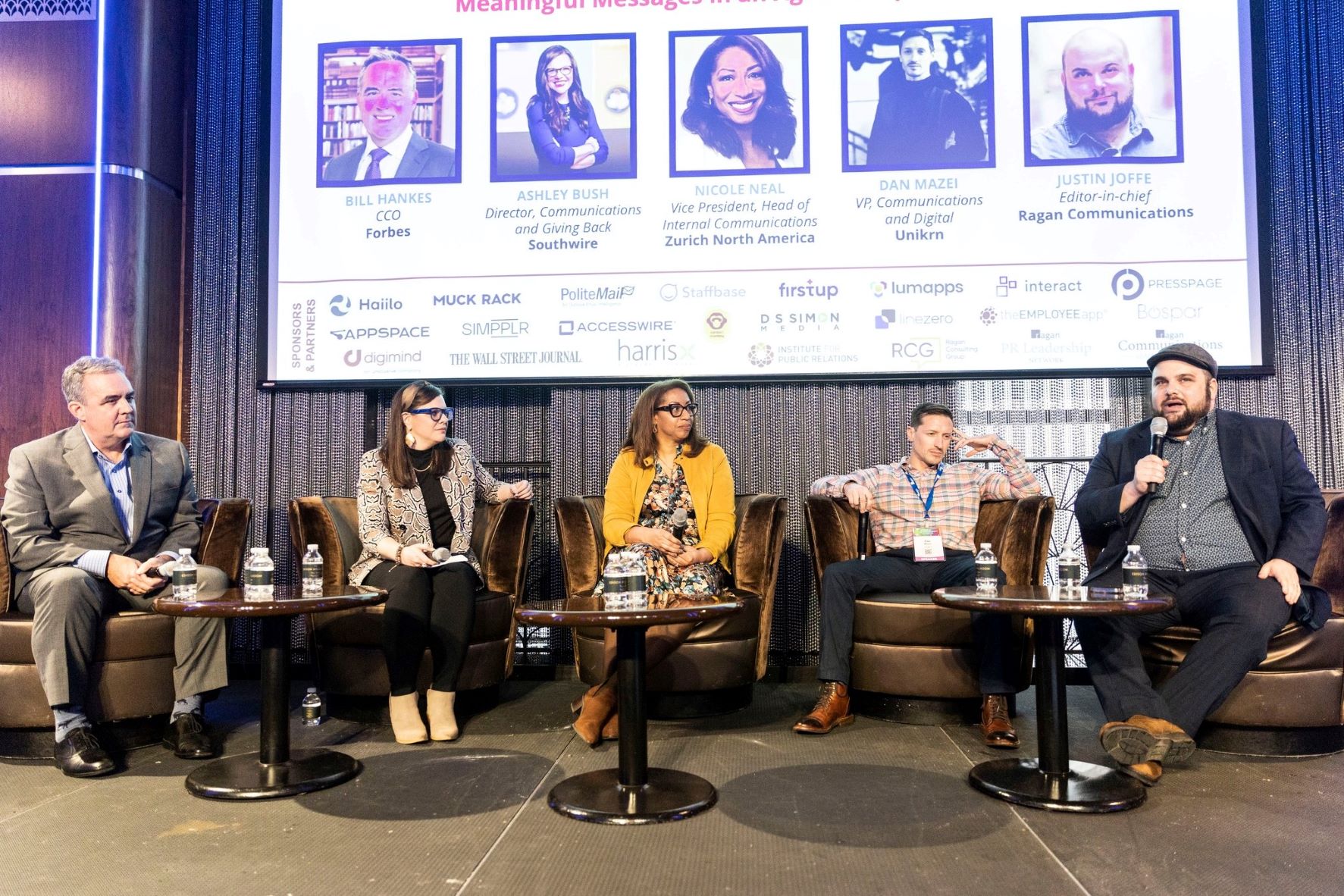How to plan for unpredictable crises internally
You can manage concerns with active listening and proactive planning.

Societal issues like the COVID-19 pandemic and the response to the murder of George Floyd have changed how many see and treat other people.
Those changes have impacted all aspects of society, including business.
Brands are faced with communicating responses to social issues in addition to handling matters directly related to their work.
[FREE GUIDE: The Ultimate Corporate Communications Internal Email Broadcast Best Practices]
And society’s voices – including those on social media – have had unprecedented power to both damage and repair corporate reputations.
“It’s something that isn’t broken in an organization, but it’s some external stimulus in our employees, or stakeholders are looking to us to take a stand,” Forbes Chief Communications Officer Bill Hankes said during the “Meaningful Messages in an Age of Perpetual Crisis” panel at the Ragan’s Future of Communications Conference in New York City. “Our job really is to help guide our organizations in articulating a position that previously we would not have to do.”
Here’s how communicators can prepare their organizations or their clients for the unexpected.
How to plan for the unpredictable
Brands need to be proactive in staying in front of new crises and proactively plan responses by using the resources they have in their organizations.
“There’s all this amazing intelligence at your fingertips from functional leaders in your company that hasn’t been brought into discussions before,” Dan Mazei, who serves as vice president of Communications and Digital at Unikrn. “We did have playbooks with very clear lines of delineation (of what to do). And now that crises are so dynamic, it requires us to talk to more leaders in the organization and consider more pathways of where that conversation can go.”
Nicole Neal, who serves as vice president and head of Internal Communications at Zurich North America, said she is prioritizing proactive planning and conversations with leadership.
“I like to plan but need to spin on a dime on numerous occasions,” she said. “This has helped me to have productive conversations with our leadership and to connect what we do in a crisis to our actual business. Because of the expanded definition of what a crisis is, that has opened up new dialogue, new conversations and shown us, new leaders.”
Getting the playbook set is key.
“We have actually done a holding statement as part of this playbook that we’ve been putting together,” said Ashley Bush, who is the director, communications and giving back at Southwire. “It’s extensive scenario planning. And we have really run the gamut of all the things that we could think could happen. We know we’re not going to put the situation down on paper, but we are preparing ourselves in the best way for what can happen.”
Communicators are key to planning and executing messages.
“Our job is to be protectors of our brands,” Hankes said. “But I also think it’s our job to be the voice of the consumer and the voice of reasoning as well.”
“Our plans haven’t necessarily changed, but who we bring into those plans has significantly changed,” Neal said. “It’s the human impact of all of this. It’s not just what’s happening in the business. It’s how it’s affecting our people.”
And that role isn’t easy.
“The role of internal communications is so much more important today than I think it probably ever has been,” Mazel said. “But that role has become infinitely more difficult over the past few years.”
When dealing with a crisis, communicators need to be willing to try new tactics and listen.
“We have to listen to those people whose ear was closer to the ground than our own,” Hankes said. “Part of a communicator’s job is to listen. I need to make sure I am doing a much better job of listening before executing the playbook.”
“I spend a lot of time with the employee listening team, in order to make sure that I get a chance to look at all of the results so that we actually know what the real issues are,” Neal said.
Chris Pugh is a staff writer for PR Daily. Follow him on Twitter and LinkedIn. Send story ideas to ChrisP@Ragan.com.






